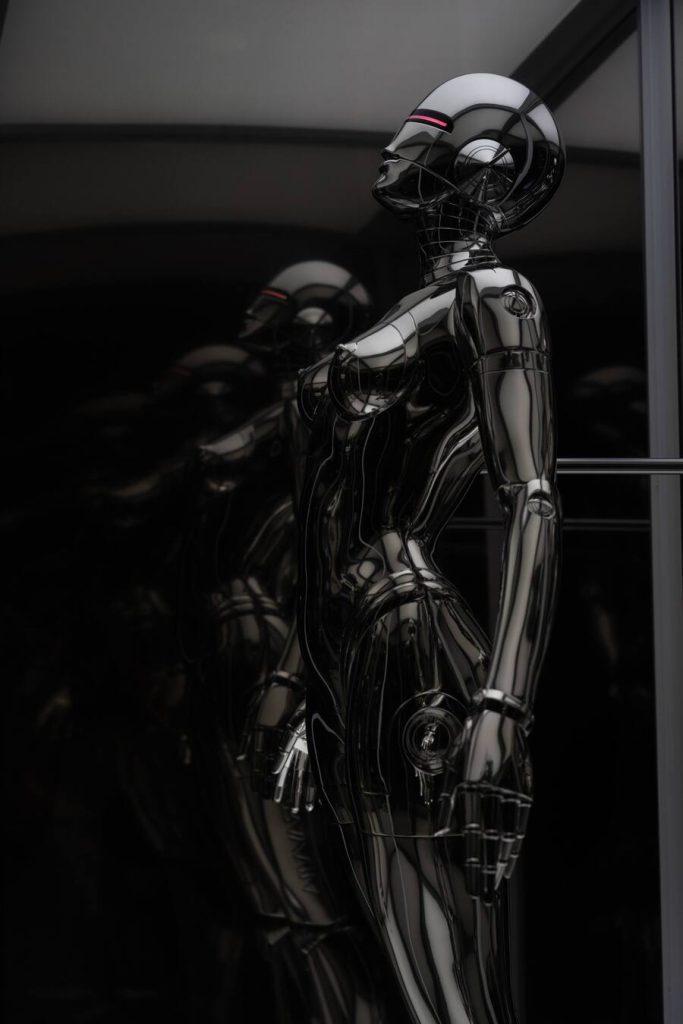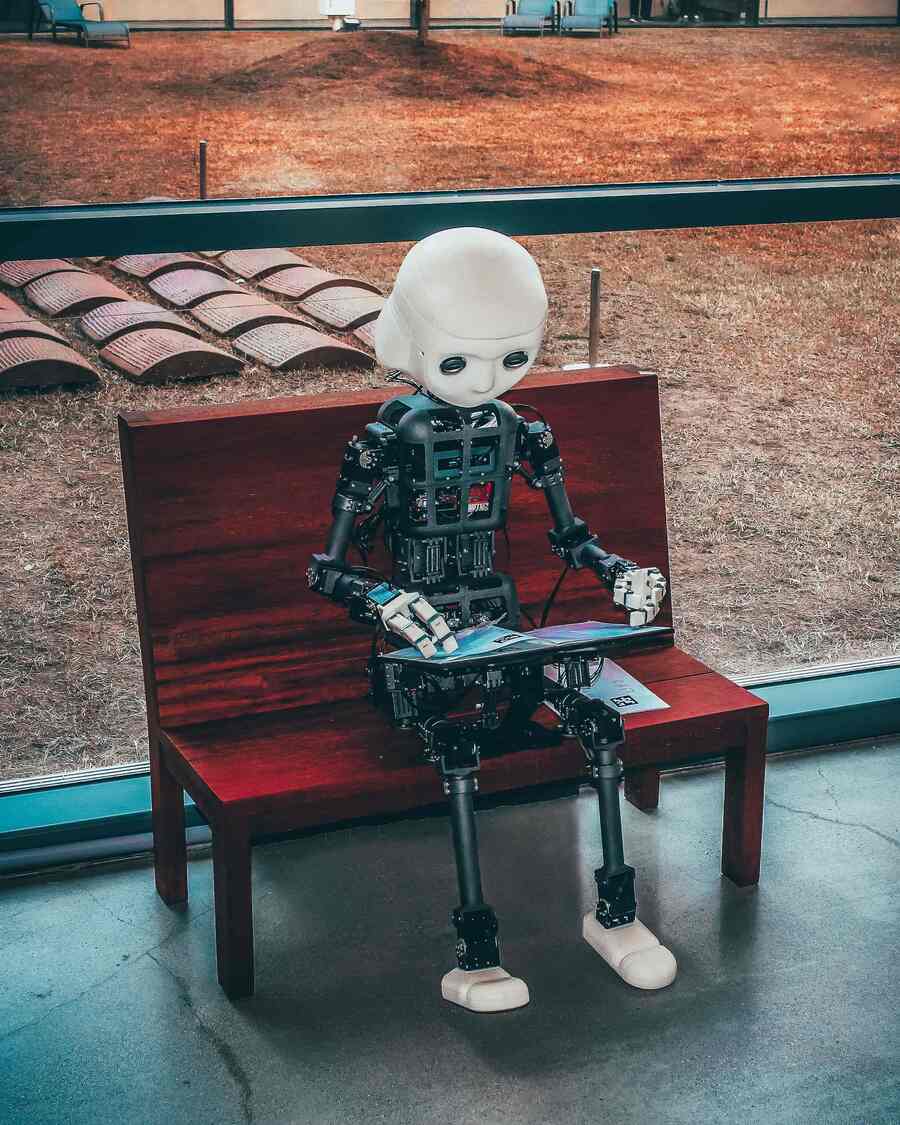Robots are not only cool and fascinating, but they are also good for humans and society in many ways. In this blog post, we will explore 21 reasons why robots are good in 2023, based on the latest trends and developments in robotics and artificial intelligence (AI).
1. Robots help humans with dangerous and difficult tasks
Robots offer a range of incredible benefits, with one of the most important being their ability to perform tasks that are not only dangerous but also challenging for humans. For example, these mechanical marvels assist in the most perilous situations, such as helping with search and rescue missions in disaster-stricken areas, inspecting deep underground tunnels and sewers, disabling explosive dangers, and exploring uncharted regions in space. Additionally, these robots boldly navigate through extreme conditions, including intense heat, harmful radiation, and going underwater, where human survival is impossible.
2. Robots improve the quality and efficiency of work
Automated machines, like robots, are beneficial for assisting people with tasks that are monotonous, boring, or demand extreme precision and accuracy. Unlike humans, robots seldom err and can maintain a steady pace of work without needing breaks or getting tired. Furthermore, these automated systems can also boost production rates, leading to greater productivity and profitability for businesses, all within a shorter time frame.

3. Robots create new jobs and opportunities
Contrary to the widespread worry that machines will take over jobs from people, automatons are actually generating fresh employment and possibilities for humans. The 2022 World Economic Forum’s Future of Jobs Report predicts that automation will, for the most part, result in more jobs. Automatons won’t just need humans to work as engineers, programmers, technicians, and operators, but they’ll also produce novel job positions and skills that people can acquire and improve. For instance, humans can become robot trainers, robot ethicists, robot designers, or robot artists.
4. Automatons enhance human capabilities and performance
Automatons can enhance human abilities and performance by assisting, supporting, or giving feedback. For instance, they can aid people in physical tasks like lifting heavy items or getting around. They can also assist in cognitive tasks, such as acquiring new knowledge or solving problems. Moreover, automatons are capable of aiding in social and emotional tasks, like communicating with others or expressing emotions.
5. Robots provide entertainment and fun
Automated machines can entertain and delight people by actively involving them in different activities like games, sports, music, and art. For instance, robots can engage in chess or soccer matches with people, sing or dance alongside them, or collaborate on painting and drawing. Furthermore, robots can introduce novel forms of entertainment and amusement that humans have never encountered.
6. Robots improve human health and well-being
Automated systems can enhance human health and overall wellness through medical assistance, therapy, and fitness support. For instance, robots can diagnose illnesses, conduct surgeries, offer physical or mental therapy, and oversee or inspire people in their fitness pursuits. They can also contribute to bettering human health and well-being by alleviating stress, combating loneliness, and mitigating depression.
7. Automatons protect the environment and conserve resources
Robots play a crucial role in safeguarding our environment and preserving resources. They achieve this by carrying out tasks that benefit our planet. For instance, robots can clean up pollution or waste from land, water, or air, monitor and restore ecosystems and biodiversity, and harness energy from renewable sources. They also contribute to environmental protection and resource conservation through efficient design and recycling, reducing their own environmental footprint.
8. Automatons promote education and learning
Robots play a role in enhancing education and learning. They grant students access to information, knowledge, and skills. For instance, robots can introduce students to new subjects or languages, guide them on particular topics or challenges, and offer career advice. Additionally, they inspire students’ curiosity, creativity, and innovation, further promoting education and learning.
9. Robots foster social inclusion and diversity
Automated systems can promote social inclusion and diversity by enabling people from various backgrounds to interact, collaborate, and participate. They can connect individuals from different cultures or backgrounds through online platforms and virtual reality, encourage teamwork among people with diverse abilities or preferences, and empower those facing discrimination or marginalization based on gender, race, age, or disability.
10. Robots advance scientific research and discovery
Robots play a crucial role in advancing scientific research and discovery. They offer data, tools, and methods that go beyond what humans can achieve. For instance, robots can gather information from hard-to-reach places like the deep sea or outer space, they provide tools for working with extremely tiny matter or at the quantum level, and they offer ways to simulate or test complex systems or phenomena. Moreover, robots can spark new hypotheses and insights that humans haven’t considered previously, further pushing the boundaries of scientific knowledge.
11. Automatons support human creativity and expression
Robots can boost human creativity and expression in several ways. They can inspire people by showcasing fresh and surprising ideas, offer helpful feedback to enhance their work or skills, and collaborate with humans to produce innovative creations or products by sharing their insights and abilities.
12. Robots enhance human safety and security
Robots play a role in boosting human safety and security. They safeguard and protect people, help prevent accidents, and detect potential threats or crimes. For instance, they can act as guards or escorts to keep humans safe from harm, inspect and maintain infrastructure or equipment to avoid accidents, and surveil or patrol areas and events to spot potential dangers.



13. Automatons improve human mobility and accessibility
Automated systems can enhance how people move and get around, making it easier for them to travel, find their way, or get the help they need. For instance, robots can drive cars or fly drones to transport people from one spot to another, offer directions and guidance to guide individuals through new or complicated places, and provide prosthetic limbs or exoskeletons to aid those with physical disabilities or limitations.
14. Automatons enrich human culture and heritage
Robots play a role in enhancing our culture and heritage by safeguarding, fixing, or presenting historical and artistic treasures. They can protect old landmarks or locations by cleaning and repairing them, repair damaged artworks like paintings and sculptures by recreating or reconstructing them, and demonstrate cultural traditions and values through dance performances or rituals.
15. Robots challenge human ethics and values
Automated systems can also provoke ethical and moral debates among humans. They may raise questions, dilemmas, or controversies that require human attention. For instance, they can challenge human ethics and values by making decisions that impact human lives or rights, create dilemmas related to justice and fairness by competing with human workers or citizens, or stir up controversies about human identity and dignity by imitating human appearance and behavior.
16. Robots enable human exploration and adventure
Robots can enhance human exploration and adventure by granting access to new locations, experiences, and viewpoints. For instance, they enable people to explore exotic destinations and landscapes that would be otherwise out of reach, deliver thrilling sensations that would otherwise be unattainable, and provide fresh perspectives and viewpoints that would otherwise remain unavailable.
17. Automatons facilitate human communication and collaboration
Robots can help people communicate and work together better. They do this by offering ways to connect, platforms for sharing, and mediators. For instance, they let people talk to each other no matter how far apart they are, even if they speak different languages or come from different backgrounds, by translating speech or text. They also give people places to share information, knowledge, or thoughts by creating online communities or networks. Additionally, they help settle disagreements or conflicts among people by providing negotiation or arbitration services.
18. Robots personalize human services and products
Robots have the ability to personalize human services and products in various ways. They can customize services or products to match human preferences or needs by adjusting features and functions. Additionally, they can recommend services or products that align with human tastes and interests by analyzing data and behavior. Furthermore, they can optimize services or products to increase human satisfaction and value by enhancing quality and efficiency.
19. Automatons empower human autonomy and agency
Robots have the ability to boost human independence and empowerment by offering options, responding to commands, and providing support. For instance, they can enhance human choice by giving more options, increase control by following commands, and amplify influence by offering support and feedback, thus enabling individuals to have a greater say in their lives and actions.
20. Robots demonstrate human intelligence and creativity
Automated systems can showcase human-like intelligence and creativity by displaying impressive skills, abilities, and achievements. For instance, robots can demonstrate logic and reasoning by solving puzzles, adapt and learn by acquiring new knowledge and skills, and showcase innovation and originality by creating new products or works.
21. Robots show human compassion and empathy
Robots can demonstrate human like compassion and empathy by displaying emotions, feelings, or sentiments in a suitable and desirable manner. For instance, machines can mirror human emotions or situations with their facial expressions, gestures, and voice tones. They can also offer comfort to those experiencing pain or sorrow by giving hugs, compliments, or sharing jokes. Additionally, they can express gratitude, apologize, or offer congratulations to appreciate human kindness and generosity.
Learn more about robot click here
Conclusion
In conclusion, the year 2023 marks an era where robots are undeniably a force for good in our world. These technological marvels are not only adept at taking on dangerous and challenging tasks, but they also significantly improve efficiency, create new job opportunities, and enhance human capabilities across various domains. Robots also bring joy and entertainment, contribute to human health and well-being, protect the environment, and promote education and diversity.
FAQs 21 Reasons Why Robots Are Good 2023
Robots can enhance efficiency, precision, and reliability, leading to better manufacturing facilities and fewer errors. They also handle tasks that may be risky or repetitive for humans.
Robots can enhance efficiency, precision, and reliability, leading to better manufacturing facilities and fewer errors. They also handle tasks that may be risky or repetitive for humans.
Robots play a crucial role in horticulture by assisting in tasks such as planting, harvesting, and monitoring plants. They provide guidance, reduce labor expenses, and enhance crop yields, contributing to increased food production.
Exploring distant regions relies on robots like wanderers, which play a crucial role. They collect information, analyze data, and explore harsh environments that are beyond human reach, advancing our understanding of the universe.

